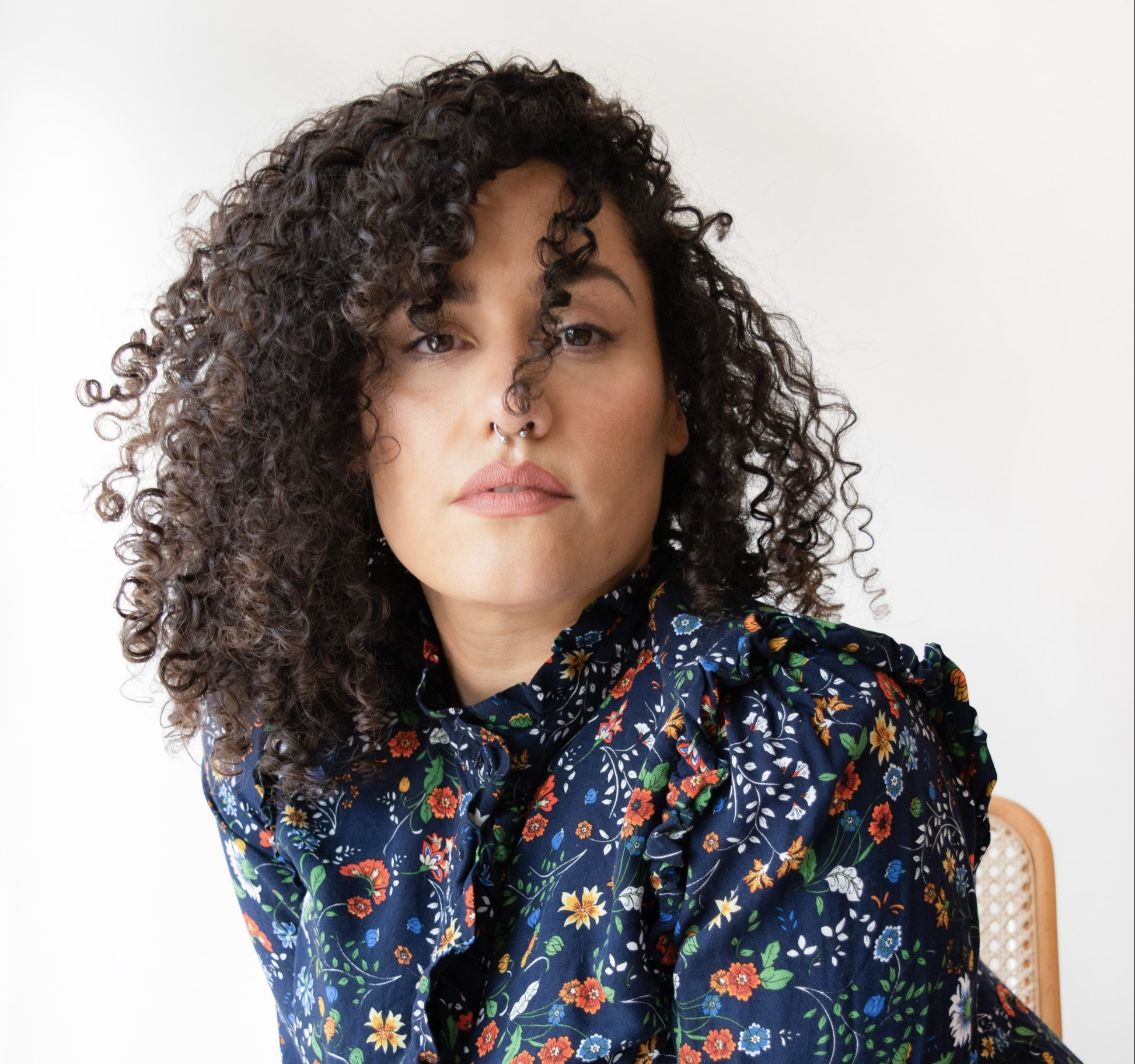

Interview
An Exclusive interview with Rising Music Star, I Used To Be Sam
We came across an acclaimed singer, songwriter and vocal powerhouse best known as I Used To Be Sam (aka Annie Goodchild. The singer and songwriter return with a brand new single “Mountains”, out on all digital streaming platforms like Spotify. The track is the latest installment taken from their upcoming debut EP, I Used to be Sam, set for release this summer.
In an interview with “I Used To Be Sam”, she shared what inspired her to start making music, and how she manage to stand out in the music industry with her unique music “Mountains”. I Used To Be Sam also shares her plan for the future and what she hopes to achieve with her music.

The conversation we had was as follows:
Can you tell our readers about what really inspired you to write music?
I wish I had this cartoon lightbulb moment to share with you, but the truth is – I somehow found myself always drawn and always coming back to music, even from a young age. As a little kid, I would listen to all these soul songs about love and heartbreak. I had no idea what the artists were talking about, but I could feel their voices in my bones. I could feel their pain, and I could feel their joy, and that sensation was just as much physical as it was emotional. I just kinda knew music was gonna be my tool and my companion to get a hold on life as much as any of us can.
When did you realize you were going to make music professionally?
I had always wanted to be a singer but was too scared to sing in front of anyone. Not even my friends or family. It wasn’t until one night in a small tequila bar in Guatemala where a new friend forced me to get up and sing at an open mic that the opportunity arose. I was terrified and literally shaking, and while staring at the floor, played a three-chord Tracey Chapman song. I remember the bar getting so, so quiet. When I was done the owner came up to me and offered me my first gig. So I guess it was then that I knew I could at least try to do this professionally and I haven’t stopped since.
Tell us what is so unique about you and your music?
The I Used To Be Sam project is telling a story I haven’t heard in music before. For the first time, and out loud, I’m conveying my initial thoughts and emotions about being a transracial adoptee (TRA). In some ways, I’m writing the music I wish I had heard as a TRA growing up. Or maybe it’s the music I need right now. I also think growing up listening to RnB, gospel, and classical music, spending my teen years hitchhiking around America, and falling in love with classic rock and folk, I get to play a little boundlessly with the genre. But I do hope that it is my voice that ties it all together in the way my favorite singers have done for me.
Can you tell us about your latest release ‘Mountains’ and what inspired you to create it?
As I started to educate myself about my own experiences of adoption and the experiences of other TRAs, I could see some common threads laced throughout so many of our stories. In Mountains, I am referencing parts of my own experience when I would disassociate as a small child, as well as representing parts of my anger and the anger of other adoptees. For a very long time, I didn’t know I was allowed to be angry. My community has validated that for me. It has been a huge part of my personal growth and a large part of how I have been able to make this music now.
Adoptees are often told that we should be grateful, for how lucky we are, or that we could have been aborted, so thank goodness you were saved. This narrative that has dominated all aspects of adoption, from movies to talks around the dinner table, has been incredibly harmful to all the adoptees I have spoken with. What this narrative does is take up all the room until there is no more space for any other feelings. We have learned as adoptees to become so small that we never offend our adoptive family or make them feel uncomfortable in any way. I can’t do this anymore and I don’t want anyone else to have to either. So I guess the need for a shift in the conversation inspired me to write Mountains.
Can you give us a brief insight into your upcoming project?
On the day I was adopted my name was changed. It was the first step in erasing who I was and where I came from. I Used To Be Sam is a look into my experiences as a transracial adoptee through music. Each song touches on a different theme including the re-rejection I experienced from my birth mother, and how that event kind of lit the fire which started all of this. This project has five songs and five videos. In each video, you will hear the interview clips from ten other TRAs who graciously contributed their stories and experiences to this project. They are a huge part of I Used to Be Sam, and this project wouldn’t be what it is without them. I’m so excited to share these songs with you, even if the subject of adoption is not personal to you in any way, or even to someone you love. It is an EP wrapped in cinematic folk, soulful vocals, and the telling of my story – as honestly as I can – which hopefully speaks to you.
What do you wish you were told when you first started making music that you think would help artists just starting out?
To just finish writing the song, even if it’s shit. And to make music because you are in love with it. Numbers, followers, streams, and downloads have no place in the art of creation. Music is for you, and for you alone. The second that focus starts to shift, and the outside world gets its hands on you, your art can’t genuinely be you anymore. And you are the thing that makes it so special.
What do you do when you don’t do music (creative or otherwise) that you are passionate about?
I like to make a lot of art. I had bronchitis a while back and couldn’t sing for almost three months. During this time, I really needed to find another creative outlet and that’s when I fell into watercolor. In the way you can get lost in sounds and droning piano, you can do the same with watercolor. Watching pigment bleed into water and paper is incredibly beautiful and meditative. Other than that, I like to read, watch too many movies, and have adult sleepovers with my lovely group of friends.
Any last piece of advice for those artists who just started making music?
Find the music and artists that inspire you. Try and figure out what it is you like about it. Make it tangible and apply that knowledge to your own art. Even if you don’t end up liking what you made and it never sees the light of day you are growing your craft. And absolutely play with other people who are better than you, who’ve done it longer and put in more time. You can learn so much more about yourself as an artist and what you’re made of when you’re in awe of the people you’re collaborating with.
How can our readers follow you online?
You can find me on all social platforms as I Used To Be Sam. I look forward to meeting you there.
Stay updated! Click the Google News follow button for more news and updates.
Follow on Google NewsInterview
Tarantino’s Cinematic Empire, Unveiling the $120 Million Maestro of Hollywood in 2024

Tarantino’s Cinematic Empire, Unveiling the $120 Million Maestro of Hollywood in 2024
Artist Spotlight
HeIsTheArtist Opens Up about New EP, Faith and more!

Can you tell us a little about your musical background and how you got started in the industry?
Growing up, I was always in some type of choir and band. I didn’t take music seriously, however, until I was an adult, when a music producer from my hometown discovered me online singing covers for fun on my Instagram page. He loved what he heard and invited me to his studio to record a single (now titled “Honey”). The rest is history.
Your new EP, “Dreaming In Emerald City (Wicked Deluxe Edition),” is a tribute to two iconic films. What inspired you to create this project?
In recent years, musical movies have grown in popularity. That alone inspired me to create this project, which mixed the essence of my favorite two musical movies with R&B.
How do you infuse elements of Broadway and neo-soul into your music?
I was deliberate with the nostalgic instrumentation to give an old-school Broadway sound. I mixed in the Neo-Soul element with my soulful vocal delivery.
The theme of empathy and self-love is prominent in this EP. Can you speak more on the messages you hope to convey through your music?
This EP is about self-discovery (which is the theme of “The Wizard of Oz” as well). The EP takes you on a journey, from love of others to self-love. By the end of the EP, I hope listeners have a little more love to give in their hearts.
Your cover of Minnie Riperton’s “Lovin’ You” has gained a lot of attention. What made you choose this song and how did you put your own spin on it?
I chose “Lovin’ You” because it’s the epitome of earthy love songs. I put a spin on it by just being myself while still honoring the original.
The EP also includes a remix of your original song “Mi Amor.” Can you talk about the inspiration behind this song and its remixes?
The song itself was inspired by “The West Side Story” (which is why the lyrics are mostly in Spanish). The song is about falling in love in a world that often times breaks lovers apart.
The retro remixes were inspired by the 1989 musical movie “Teen Witch” where the main character had trouble finding love until she realized she always had the power to find love, she just had to find love within herself.
Your music has reached international success, particularly in the UK. How does it feel to have such a wide audience for your music?
It feels great that my music is reaching larger audiences. It shows that my God-fearing music is being embraced in a world that can be so heartless at times.
You have been described as a Christian R&B artist. Can you tell us about the role of faith in your music?
God is everything in my music. God is love, which is why every song I sing is about love.
Can fans expect any live performances or tours in support of this EP?
Yes, towards the summer, I will be doing various live performances. Stay posted to my social media for performance dates!
What can we expect from HeIsTheArtist in the future? Any upcoming projects or collaborations to look out for?
On May 10th I will be releasing a cover of “(At Your Best) You Are Love” by The Isley Brothers paired with a cinematic music video. I call this project “Dreaming In Emerald City 1.5” because it expands on the concepts that my EP “Dreaming In Emerald City” touched on.
www.artistecard.com/heistheartist







